![La Pampa's Illegal Gold Mining - [CONTRACTORS NAMES TK] were hired by CINCIA to use their aquatic drone to capture bathymetric and...](https://cloud.visura.co/867232.xx_large.jpg)
[CONTRACTORS NAMES TK] were hired by CINCIA to use their aquatic drone to capture bathymetric and basic water quality data on the ponds formed by mining in La Pampa. Understanding how deep the mining worked the soil helps estimate the amount of subsurface and ancient carbon released in the pocess. It may also help with environmental management decisions regarding how to remediate and/or use the ponds in the future. Following Peru's February 2019 militarized crackdown on illegal and unofficial alluvial gold mining in the La Pampa region of Madre de Dios, Wake Forest University's Puerto Maldonado-based Centro de Innovación Científica Amazonia (CINCIA), a leading research institution for the development of technological innovation for biological conservation and environmental restoration in the Peruvian Amazon, is applying years of scientific research and technical experience related to understanding mercury contamination and managing Amazonian ecosystems. What they learn will help guide urgent remediation, restoration, and reforestation efforts that can also serve as models for how we address the tropic’s most dramatically devastated landscapes around the world. La Pampa, Madre de Dios, Peru.
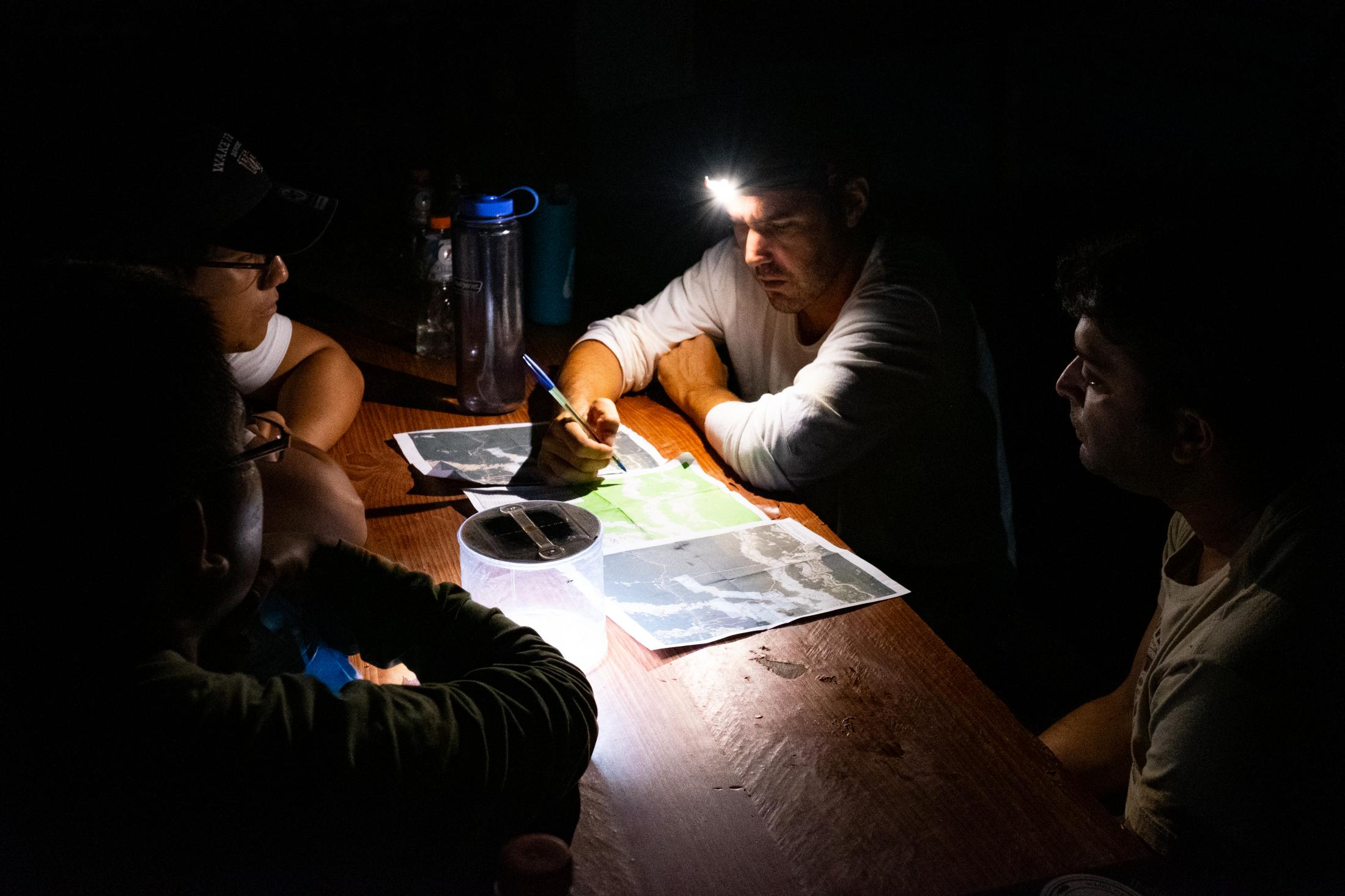
Julio Araújo, Field and Laboratory Coordinator at CINCIA looks over maps at the Balata military base with his team to plan the next days survey of mining ponds. Following Peru's February 2019 militarized crackdown on illegal and unofficial alluvial gold mining in the La Pampa region of Madre de Dios, Wake Forest University's Puerto Maldonado-based Centro de Innovación Científica Amazonia (CINCIA), a leading research institution for the development of technological innovation for biological conservation and environmental restoration in the Peruvian Amazon, is applying years of scientific research and technical experience related to understanding mercury contamination and managing Amazonian ecosystems. What they learn will help guide urgent remediation, restoration, and reforestation efforts that can also serve as models for how we address the tropic’s most dramatically devastated landscapes around the world. La Pampa, Madre de Dios, Peru.
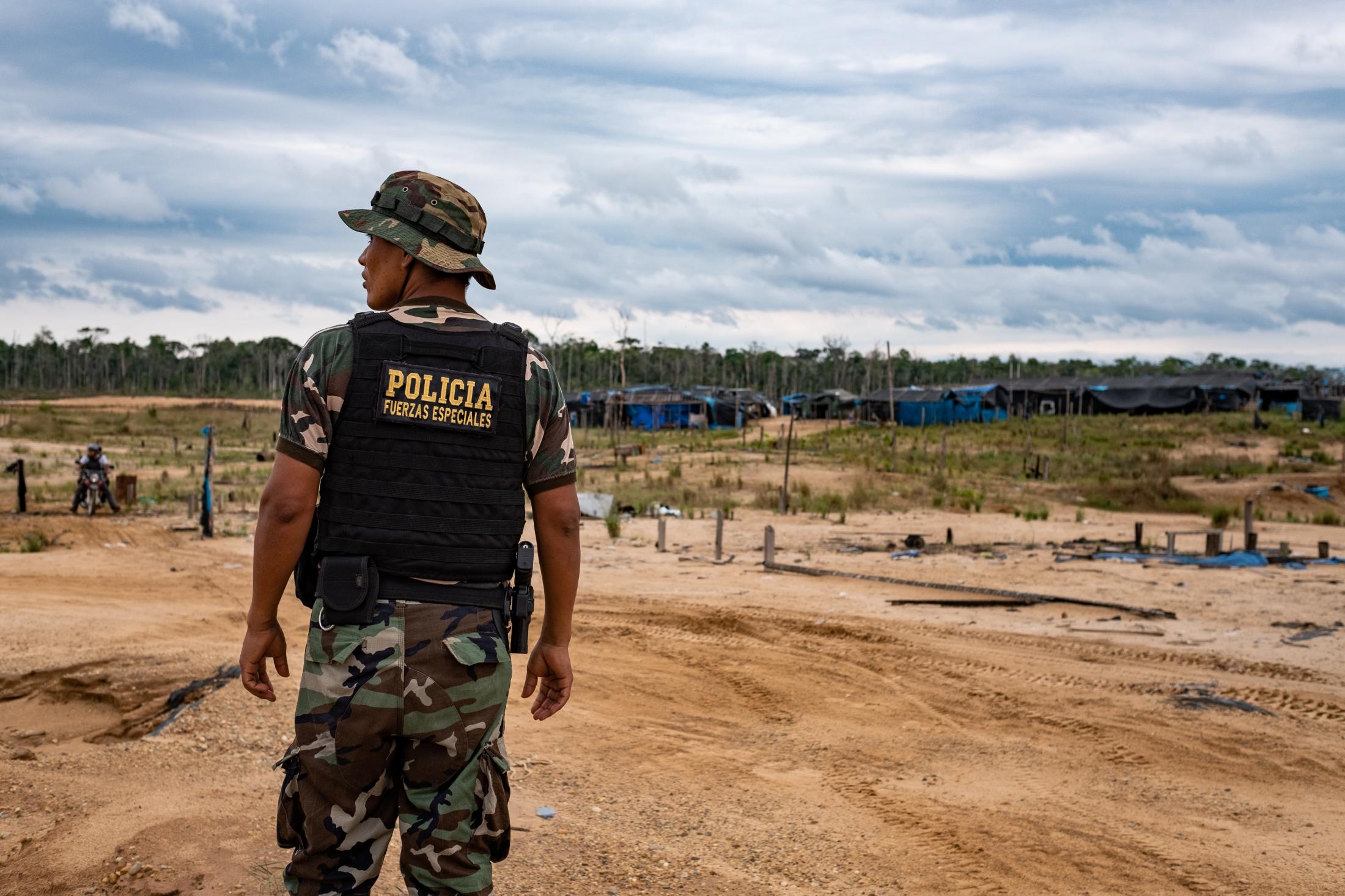
The Peruvian National Police near their field base, Mega 12. Following Peru's February 2019 militarized crackdown on illegal and unofficial alluvial gold mining in the La Pampa region of Madre de Dios, Wake Forest University's Puerto Maldonado-based Centro de Innovación Científica Amazonia (CINCIA), a leading research institution for the development of technological innovation for biological conservation and environmental restoration in the Peruvian Amazon, is applying years of scientific research and technical experience related to understanding mercury contamination and managing Amazonian ecosystems. What they learn will help guide urgent remediation, restoration, and reforestation efforts that can also serve as models for how we address the tropic’s most dramatically devastated landscapes around the world. La Pampa, Madre de Dios, Peru.
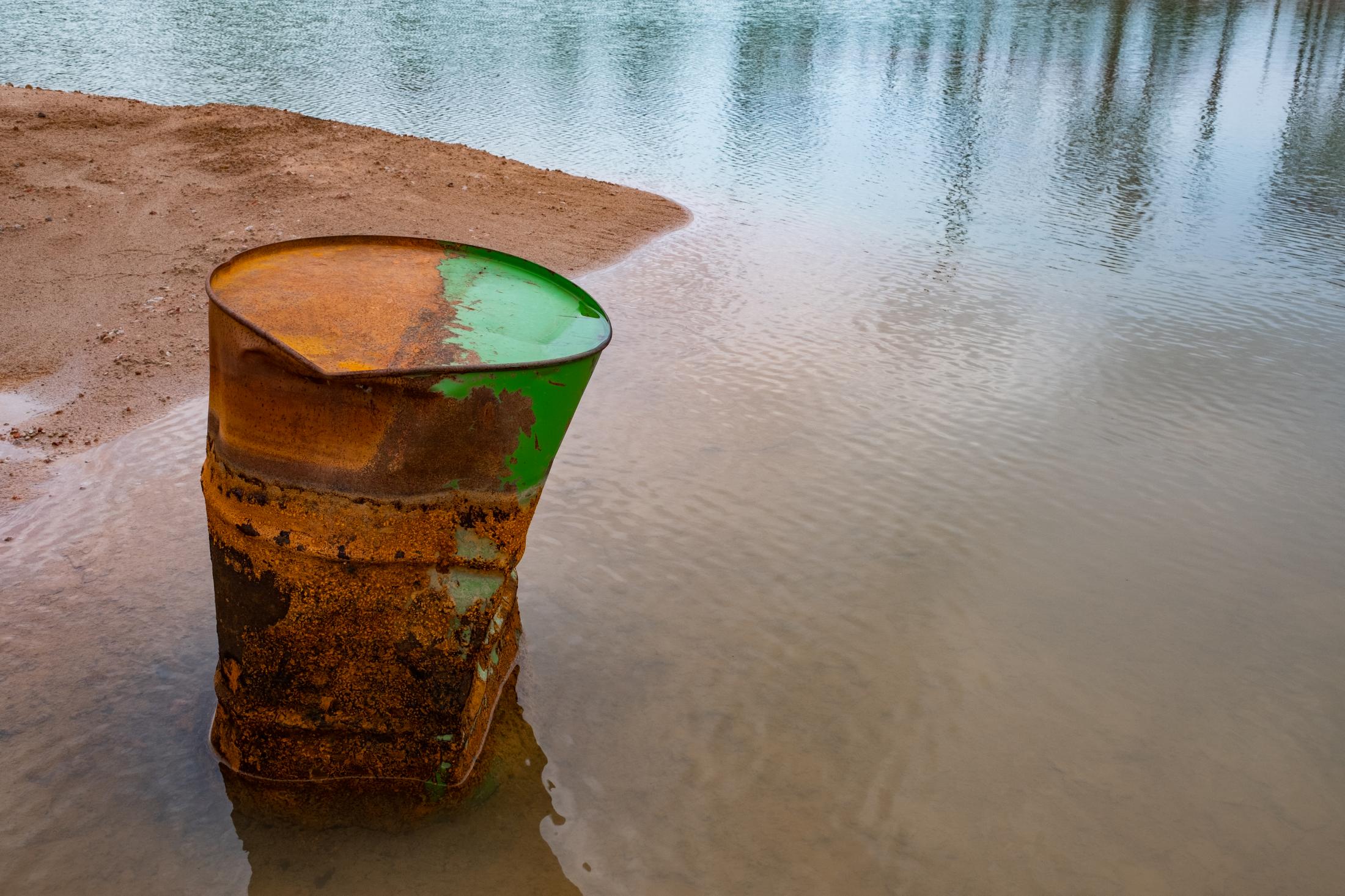
The aftermath of illegal and unofficial alluvial gold mining after miners were forceably removed from the area, showing local pollution and the massive deforestation associated with the process. Following Peru's February 2019 militarized crackdown on illegal and unofficial alluvial gold mining in the La Pampa region of Madre de Dios, Wake Forest University's Puerto Maldonado-based Centro de Innovación Científica Amazonia (CINCIA), a leading research institution for the development of technological innovation for biological conservation and environmental restoration in the Peruvian Amazon, is applying years of scientific research and technical experience related to understanding mercury contamination and managing Amazonian ecosystems. What they learn will help guide urgent remediation, restoration, and reforestation efforts that can also serve as models for how we address the tropic’s most dramatically devastated landscapes around the world. La Pampa, Madre de Dios, Peru.
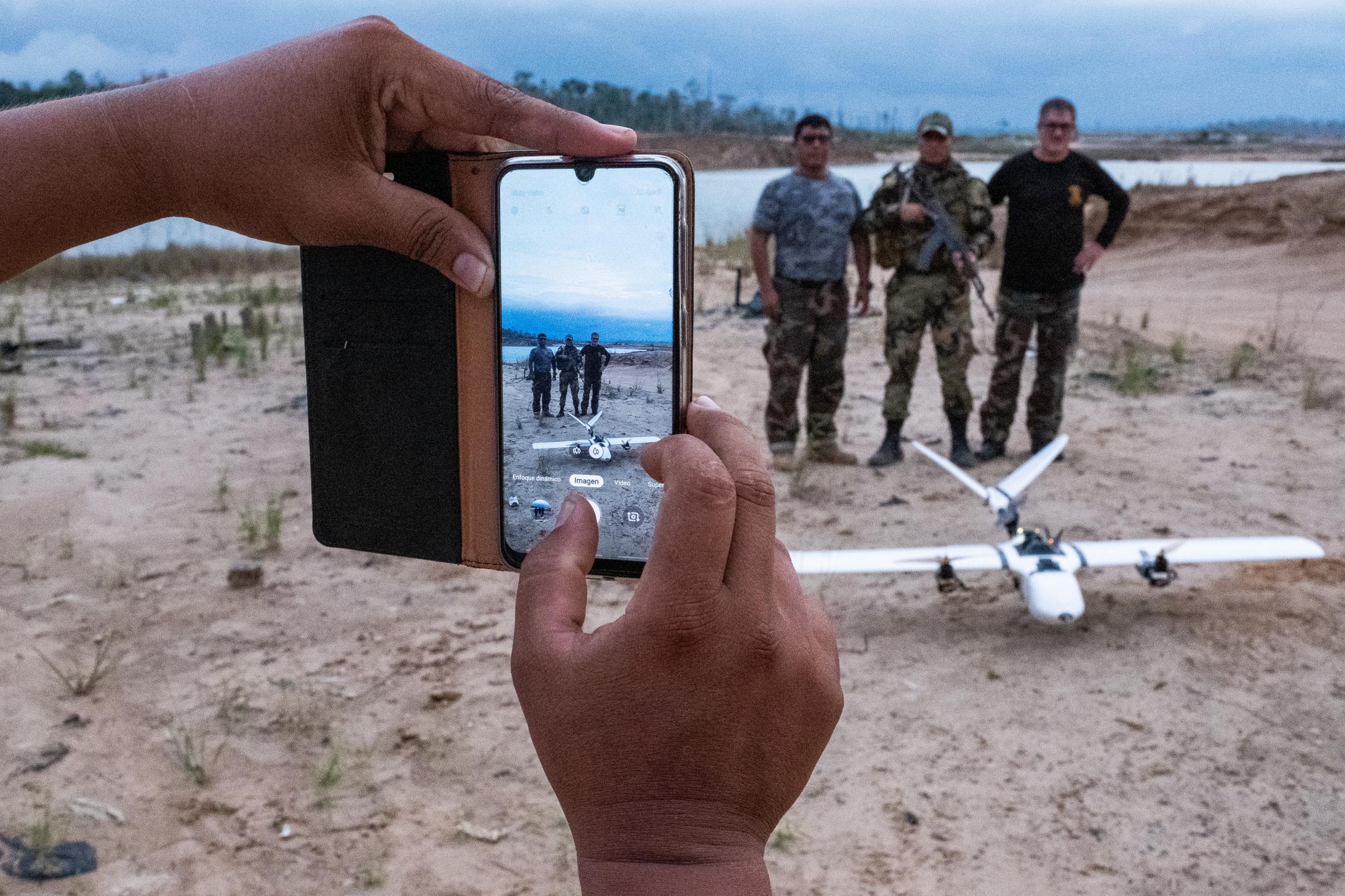
Peruvian National Police Special Forces members from the Mega 12 base take a photo with CINCIA's drone. Following Peru's February 2019 militarized crackdown on illegal and unofficial alluvial gold mining in the La Pampa region of Madre de Dios, Wake Forest University's Puerto Maldonado-based Centro de Innovación Científica Amazonia (CINCIA), a leading research institution for the development of technological innovation for biological conservation and environmental restoration in the Peruvian Amazon, is applying years of scientific research and technical experience related to understanding mercury contamination and managing Amazonian ecosystems. What they learn will help guide urgent remediation, restoration, and reforestation efforts that can also serve as models for how we address the tropic’s most dramatically devastated landscapes around the world. La Pampa, Madre de Dios, Peru.
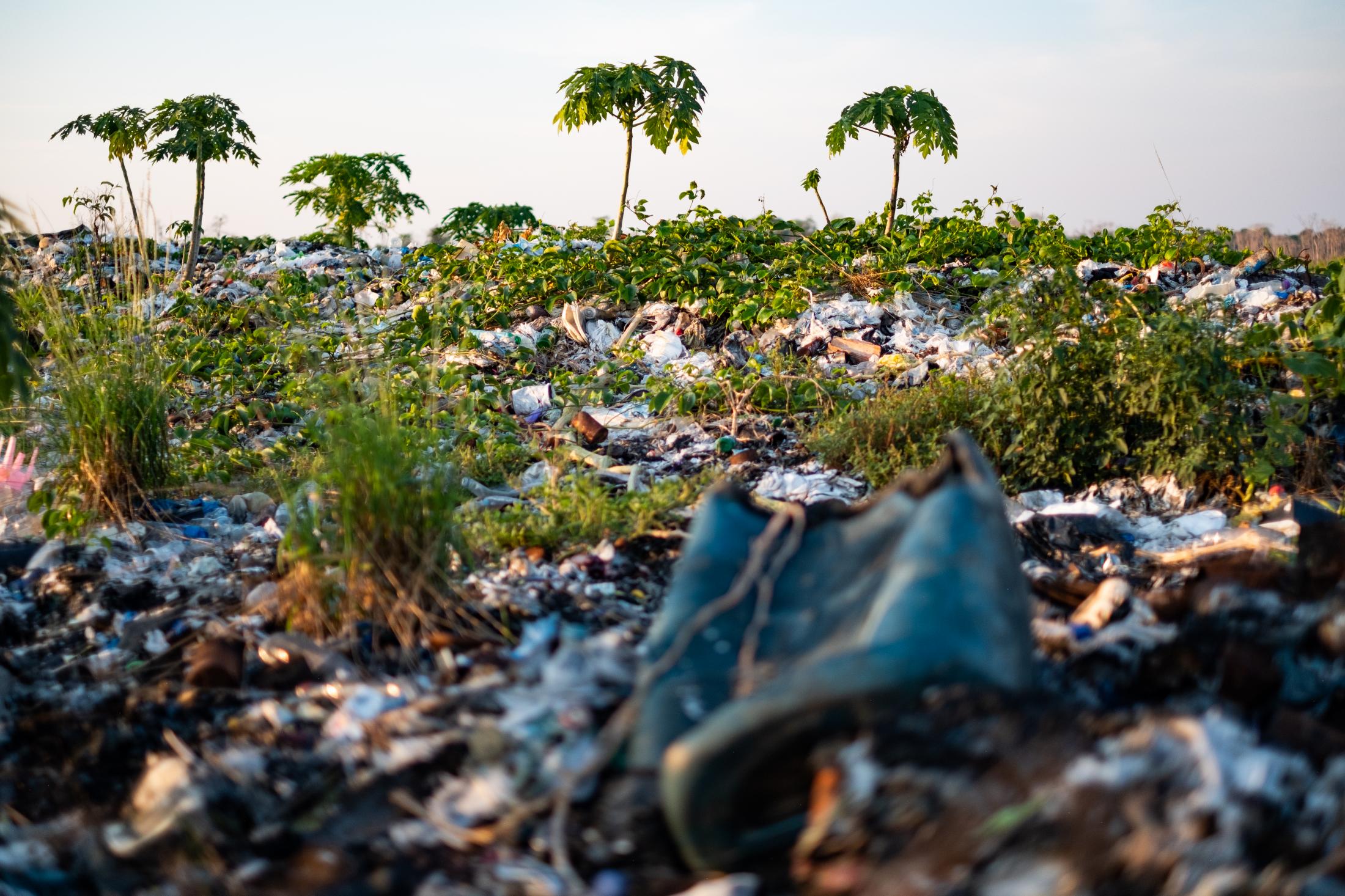
Trash piles act as mulch, holding water and protecting plants such as papaya, camote, peppers, and watermelon that grow from seeds discarded in food waste. Following Peru's February 2019 militarized crackdown on illegal and unofficial alluvial gold mining in the La Pampa region of Madre de Dios, Wake Forest University's Puerto Maldonado-based Centro de Innovación Científica Amazonia (CINCIA), a leading research institution for the development of technological innovation for biological conservation and environmental restoration in the Peruvian Amazon, is applying years of scientific research and technical experience related to understanding mercury contamination and managing Amazonian ecosystems. What they learn will help guide urgent remediation, restoration, and reforestation efforts that can also serve as models for how we address the tropic’s most dramatically devastated landscapes around the world. La Pampa, Madre de Dios, Peru.
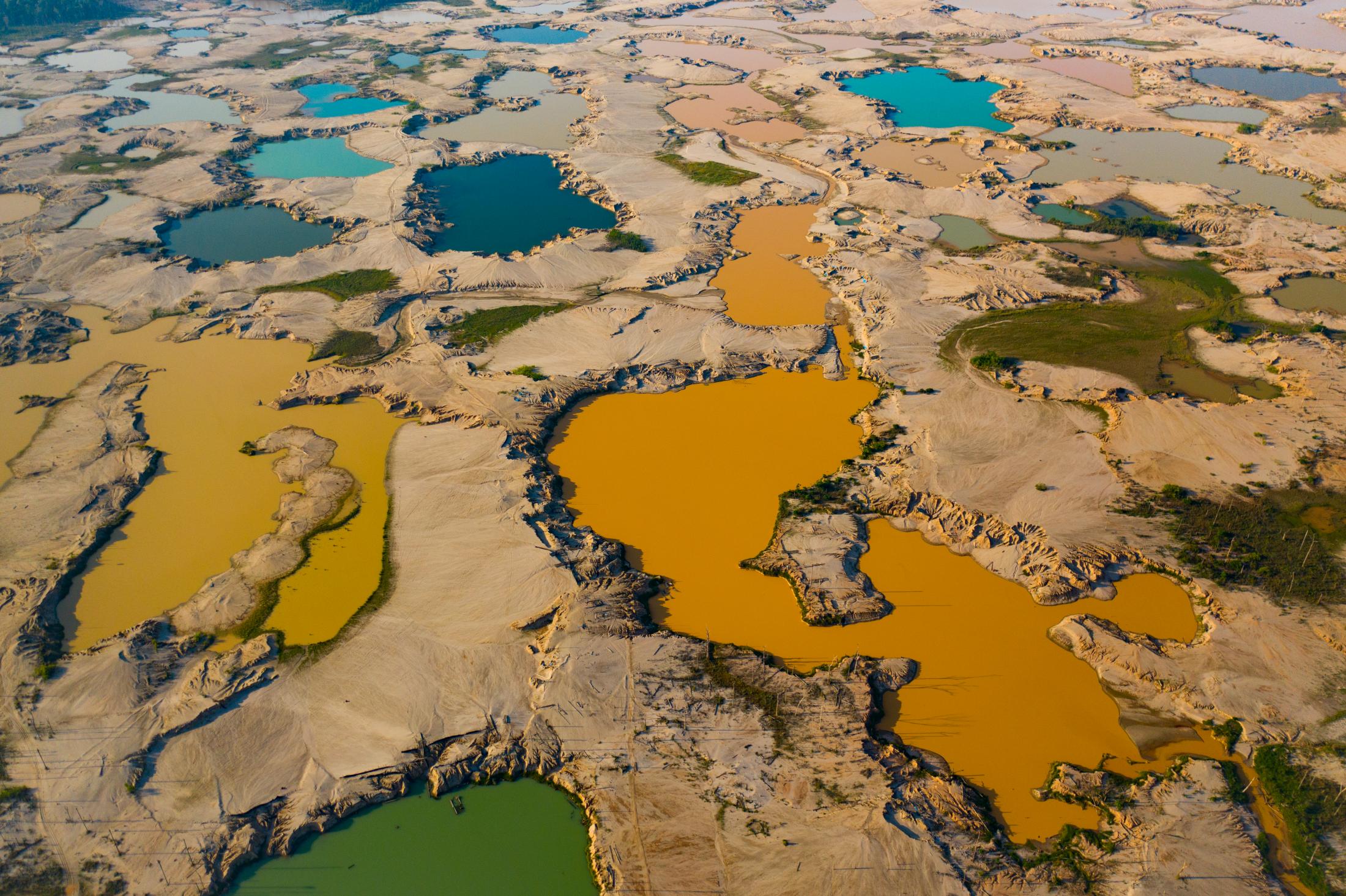
Aerial drone photographs showing the extent of the deforestation impact from alluvial gold mining on the tropical forests of the Madre de Dios region. The ponds took water from local rivers and wetlands for liquifying and sorting soil to extract gold. This also impacted trees near the cleared areas due to the dramatic changes in the watertable. Following Peru's February 2019 militarized crackdown on illegal and unofficial alluvial gold mining in the La Pampa region of Madre de Dios, Wake Forest University's Puerto Maldonado-based Centro de Innovación Científica Amazonia (CINCIA), a leading research institution for the development of technological innovation for biological conservation and environmental restoration in the Peruvian Amazon, is applying years of scientific research and technical experience related to understanding mercury contamination and managing Amazonian ecosystems. What they learn will help guide urgent remediation, restoration, and reforestation efforts that can also serve as models for how we address the tropic’s most dramatically devastated landscapes around the world. La Pampa, Madre de Dios, Peru.

![La Pampa's Illegal Gold Mining - [CONTRACTORS NAMES TK] were hired by CINCIA to use their aquatic drone to capture bathymetric and...](https://cloud.visura.co/867232.xx_large.jpg)





